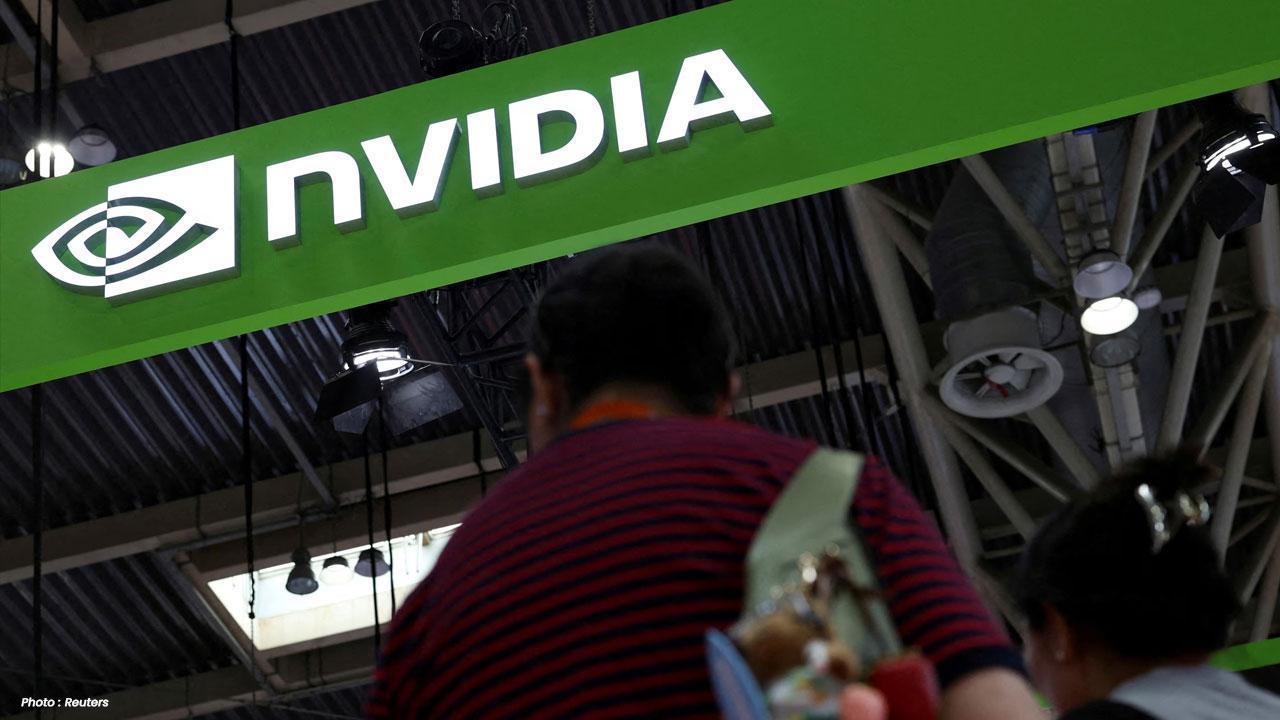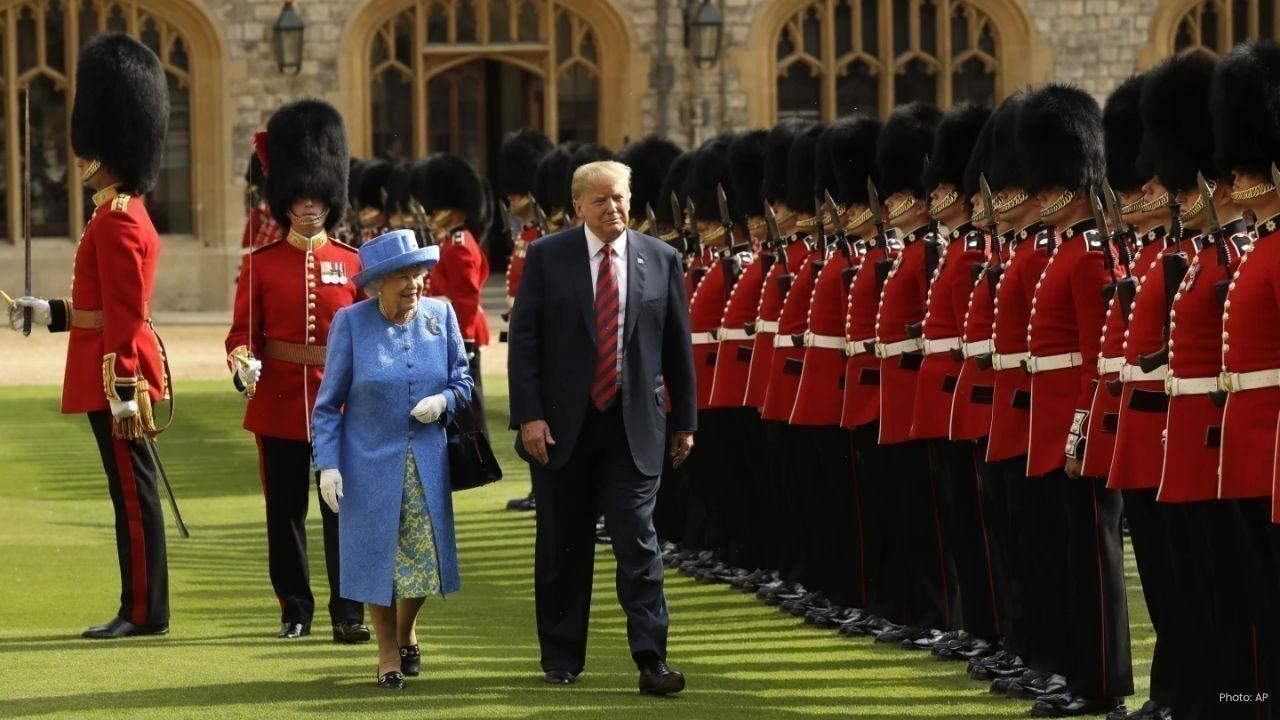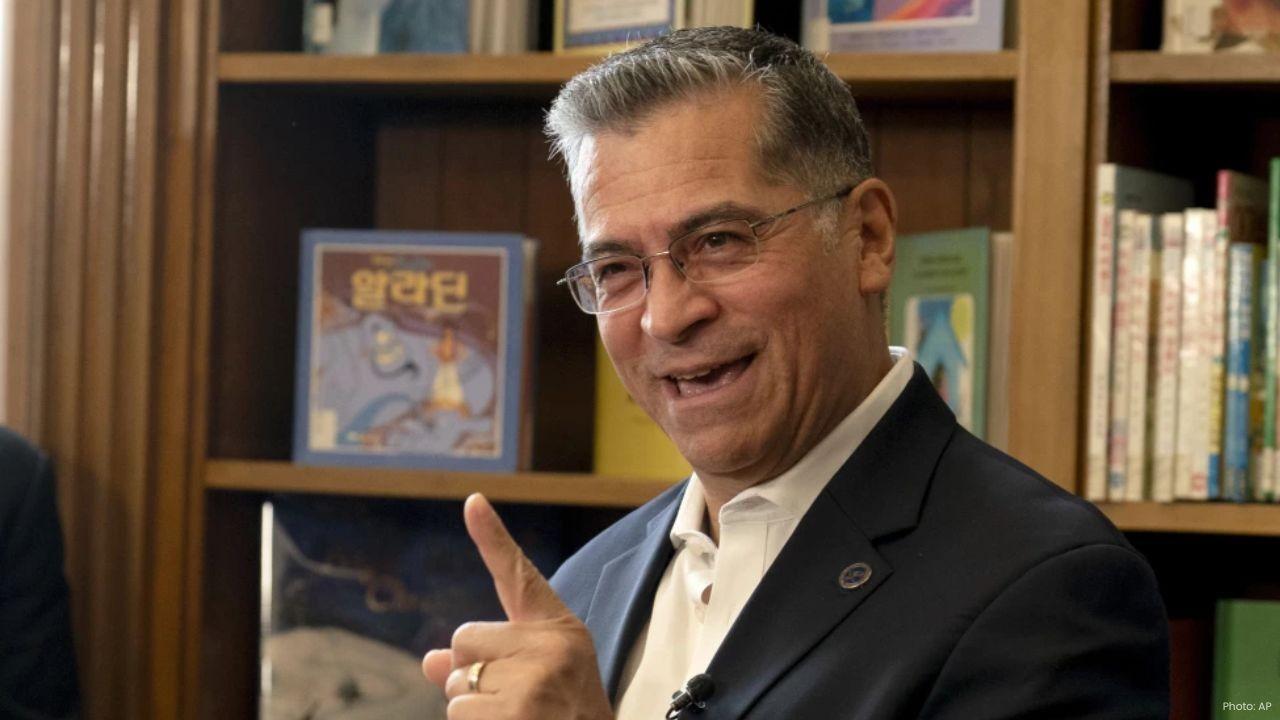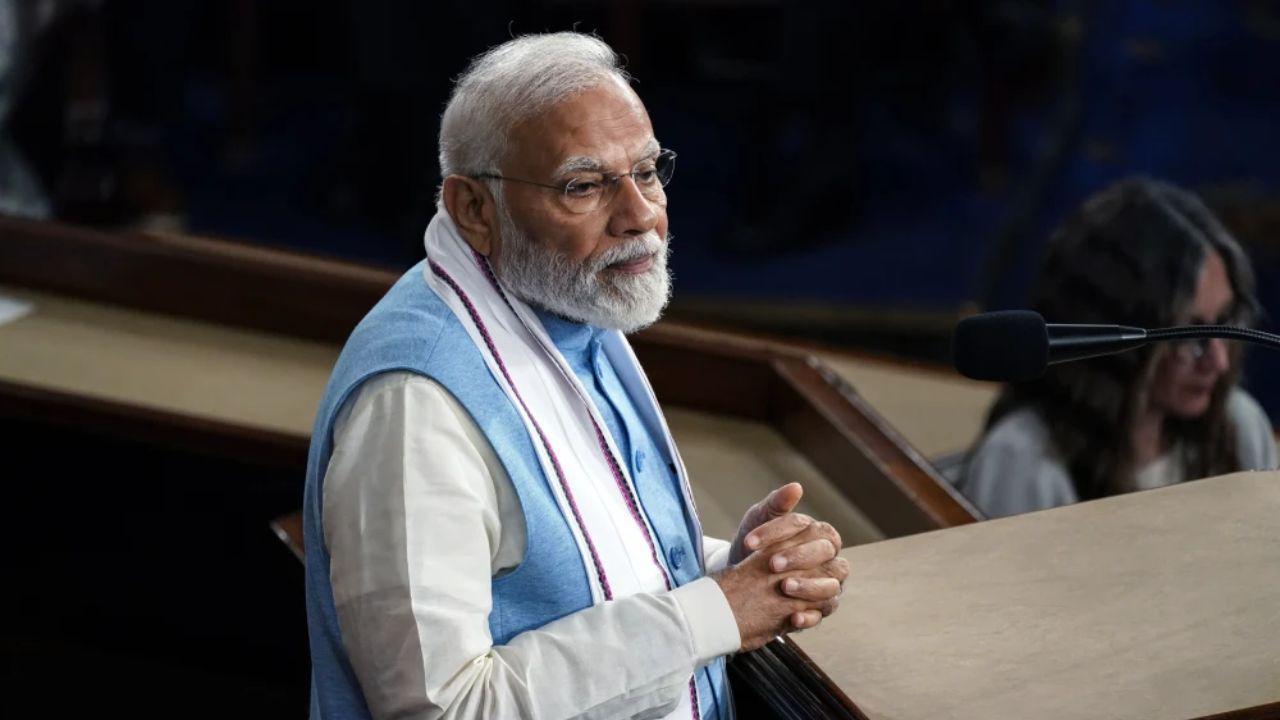
Join 10k+ people to get notified about new posts, news and tips.
Do not worry we don't spam!

Post by : Raman
China has announced that it will continue its investigation into the United States chip maker Nvidia, following preliminary findings that suggest the company violated China’s anti-monopoly laws. The probe specifically focuses on Nvidia's acquisition of Israeli chip designer Mellanox Technologies, a deal that Beijing had conditionally approved in 2020.
The Chinese market regulator claims that Nvidia did not comply fully with the terms set during that approval. As a result, authorities have decided to extend the antitrust investigation, signaling the seriousness of potential violations. The decision also comes at a critical time as the United States and China are engaged in ongoing trade negotiations in Madrid. This development could complicate discussions, especially in the high-tech sector, which is already under intense scrutiny from both countries.
Nvidia, based in California, is one of the world’s leading manufacturers of graphics processing units (GPUs) and has been expanding aggressively in recent years. Its acquisition of Mellanox Technologies, completed in 2020, was intended to strengthen Nvidia’s data center capabilities and networking technologies. While the deal was approved by multiple countries, including China, Beijing’s regulatory authorities imposed specific conditions to ensure competition and prevent Nvidia from monopolizing the market.
According to the Chinese authorities, Nvidia may have violated those conditions. Although the regulator has not yet provided full details of the alleged violations, it emphasized that the preliminary findings indicated serious concerns about compliance with anti-monopoly regulations. This has prompted a continuation of the investigation to gather further evidence and assess whether Nvidia must take corrective actions or face penalties.
China’s anti-monopoly laws have been increasingly enforced in recent years, targeting not only domestic companies but also foreign corporations operating within its borders. High-profile probes have involved technology giants from the United States and elsewhere, with regulators paying particular attention to mergers, acquisitions, and potential anti-competitive practices in emerging markets such as semiconductors, e-commerce, and cloud computing.
The Nvidia investigation highlights the sensitive nature of technology-related trade between the U.S. and China. Chips and semiconductors are considered strategic assets in both countries, crucial for economic growth, national security, and global competitiveness. Any regulatory action affecting major companies in this sector can have ripple effects on international markets, investor confidence, and bilateral trade relations.
In recent years, tensions between the U.S. and China in the tech industry have intensified. The U.S. government has imposed export controls on advanced semiconductor equipment, limiting China’s ability to manufacture cutting-edge chips. Meanwhile, Chinese regulators are increasingly scrutinizing foreign companies to ensure compliance with local laws. The Nvidia case fits into this larger context, demonstrating how regulatory compliance and trade policies intersect in a highly competitive global market.
Nvidia has yet to release an official statement regarding the continuation of the investigation. Analysts suggest that the company may face fines, restrictions, or required divestitures if the investigation concludes that violations occurred. The outcome could also set a precedent for other foreign tech companies operating in China, emphasizing the importance of following regulatory conditions closely.
The timing of this development is particularly notable because it occurs during U.S.-China trade discussions in Madrid. Both countries have been negotiating on multiple fronts, including tariffs, intellectual property rights, and technology trade. The extension of the Nvidia probe could introduce additional complexities into these talks, potentially affecting broader economic and trade agreements.
Market observers have pointed out that the Nvidia investigation may have short-term implications for the global semiconductor industry. Nvidia’s shares have experienced volatility in response to news of regulatory scrutiny, and similar cases in the past have led to temporary disruptions in supply chains and investor sentiment. Long-term impacts will depend on the outcome of the investigation and the company’s ability to comply with China’s requirements.
In addition to potential fines or legal penalties, Nvidia may need to adjust its business strategy in China. The company has invested heavily in data center technologies, artificial intelligence, and high-performance computing. Any restrictions or additional oversight could slow down its expansion plans and influence partnerships with Chinese firms.
Experts emphasize that foreign companies operating in China must carefully follow regulatory conditions, particularly in high-growth sectors such as semiconductors. The Nvidia case reinforces the message that compliance with antitrust laws is not optional, and that authorities are willing to take decisive action if violations are suspected.
The situation also underscores the delicate balance in U.S.-China relations. While both countries benefit from trade and technology exchanges, disputes over regulatory compliance and market access continue to create tensions. The Nvidia probe is a reminder that global tech companies must navigate complex legal and political landscapes while maintaining growth and innovation.
China’s decision to continue the antitrust investigation into Nvidia over the Mellanox Technologies acquisition highlights ongoing regulatory vigilance and the sensitive nature of U.S.-China tech relations. As trade talks proceed in Madrid, this case will be closely watched by investors, policymakers, and industry leaders worldwide. The outcome could influence future mergers, acquisitions, and operational strategies for global technology companies operating in China.
For Nvidia, the priority will be to cooperate fully with Chinese authorities and ensure compliance with all regulatory conditions. For global markets, the case serves as a reminder of the complexities involved in international business, especially in strategic sectors like semiconductors and high-tech equipment
China, Nvidia, Mellanox, antitrust investigation, US-China trade, semiconductors, technology news










Lily Collins Shines in Glamorous Calvin Klein Look at New York Fashion Week
Lily Collins stuns at NY Fashion Week in a sparkling Calvin Klein co-ord set, blending elegance, gla

Lippo Di Carrara wins UAE President’s Cup Derby at Doncaster
Lippo De Carrere shines at Doncaster, winning the UAE President’s Cup UK Arabian Derby, the richest

Jaismine Lamboria Wins World Boxing Gold for India
India’s Jaismine Lamboria claimed World Boxing gold, while Nupur Sheoran earned silver and Pooja Ran

Sri Lanka beat Bangladesh by 6 wickets in Asia Cup 2025 opener
Sri Lanka started their Asia Cup 2025 campaign with a six-wicket win over Bangladesh, powered by Nis

PM Modi Lays ₹6,300 Crore Projects in Assam Criticizes Congress
PM Modi accuses Congress of backing infiltrators, lays ₹6,300 crore health and infrastructure projec

Sushila Karki Becomes Nepal’s First Woman Prime Minister
Eminent jurist Sushila Karki, 73, becomes Nepal’s first woman prime minister after Gen Z protests to